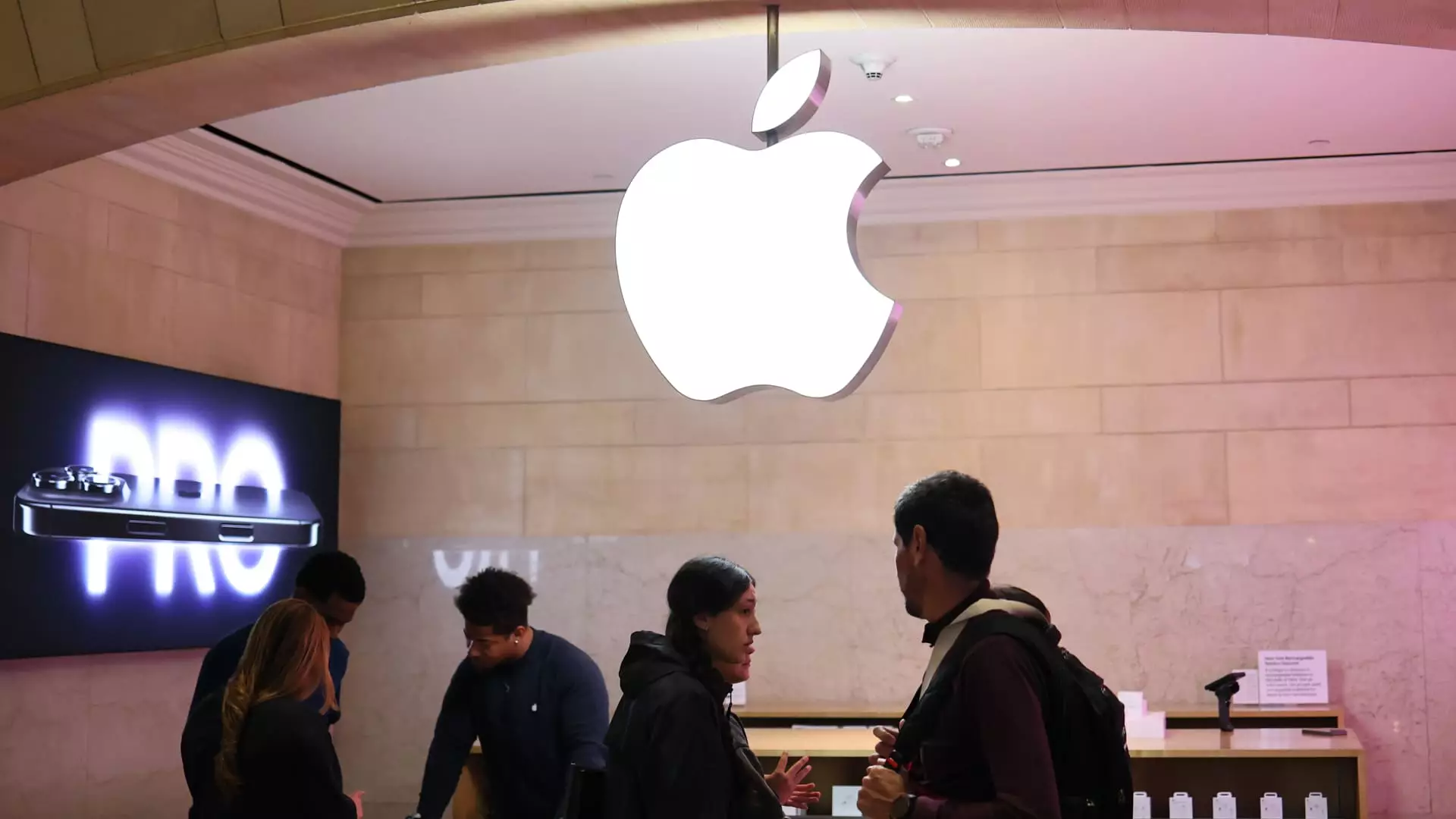Apple’s significant reliance on Chinese supply chains has reached a critical point. With the cumulative tariff rate on Chinese imports swelling to an astounding 145%, the tech giant stands at a crossroads that could redefine its path in the global market. The brief respite offered by President Donald Trump’s temporary halt on reciprocal tariffs might have provided some firms a moment to breathe, but for Apple, it is hardly a cause for celebration. As one of the world’s leading brands, the stakes have never been higher, and the implications of these tariffs are stark and unsettling.
Industry analysts are sounding alarm bells, lamenting that the imposition of such heavy tariffs has the potential to set Apple back by “many years.” This is exemplified by Dan Ives, the global head of technology research at Wedbush Securities, who likened Apple’s situation to being adrift in a turbulent ocean without a life raft. While under normal circumstances, companies can absorb some level of increased costs, an 85% price hike on iPhones due to tariffs is not merely an inconvenience; it’s a prospect that could cripple even the most robust of businesses.
Stockpiling as a Temporary Solution
In anticipation of these unfavorable changes, Apple has ramped up its importation of iPhones from India. Reports indicate that even before the latest wave of tariffs kicked in, Apple shipped approximately 1.5 million units to the U.S. from its Indian facilities. Such stockpiling could serve as a temporary salve, allowing the company to cushion itself against immediate repercussions. Yet, consumer behavior complicates the equation. As rumors of price hikes circulate, there’s a potential increase in consumer purchases, further depleting Apple’s stockpiles.
The dilemma lies in the fact that while stockpiling may buy time, it doesn’t offer a long-term solution. Experts like Le Xuan Chiew from Omdia caution that given the nature of global supply chains, these reserves cannot last indefinitely, and as the demand climbs, they risk running out quickly. The stockpiling strategy might just delay the inevitable reckoning with the tariffs, and as inventory levels drop, the full weight of the tariff burden will be felt.
India: Apple’s Double-Edged Sword
In search of a more stabilizing option, Apple is intensively diverting its focus towards manufacturing in India. Despite some promising initial steps—such as production of the high-end Pro Max models—this transition is neither immediate nor uncomplicated. While India offers potential tariff advantages in the current political climate, the long-term reliability of this strategy remains questionable, especially given that sufficient ramp-up in manufacturing capacity could take years.
Even under the best circumstances, Apple’s endeavors in India face significant tariff risks of their own. It is one thing to promote the idea of producing devices in a new market, and quite another to make it a reality that meets the demand. With a complex geopolitical climate that could change more rapidly than expected, Apple’s diversification efforts may not provide the safety net they hope for.
The Fragile Nature of Political Negotiation
Despite these daunting challenges, there remains a flicker of hope that intervention from the Trump administration may offer Apple some reprieve. Historical precedent shows that companies committing substantial investments—like Apple’s ambitious $500 billion pledge—can sometimes sway political leaders towards favorable tariff exemptions. However, this brings about a significant irony: while Apple is heralded for its massive financial commitments, it must also navigate the headwinds created by the same leadership.
Analysts foresee a possible thaw in the aggressive tariff strategies aimed at China, yet they unanimously caution that even if such concessions are granted, they might not suffice to eliminate the ramifications of the tariffs. Craig Moffett of MoffettNathanson suggests that any potential thaw or exemption would still leave Apple reeling from the aftershocks of its current predicament.
The Future: Uncharted Waters
Apple finds itself at an existential crossroads, forced to reconsider not only its supply chain strategies but also its foundational operational philosophies. The days of easy commerce are over, and in this high-stakes game of geopolitical chess, all players—including Apple—must adapt quickly or risk being left behind. The irony is bitter; the brand known for innovation is now grappling with a crisis that could endanger its standing as an industry titan. The road ahead is fraught with uncertainty, and while the company charts a new course, its reliance on traditional supply chain dynamics may prove to be its Achilles’ heel.

